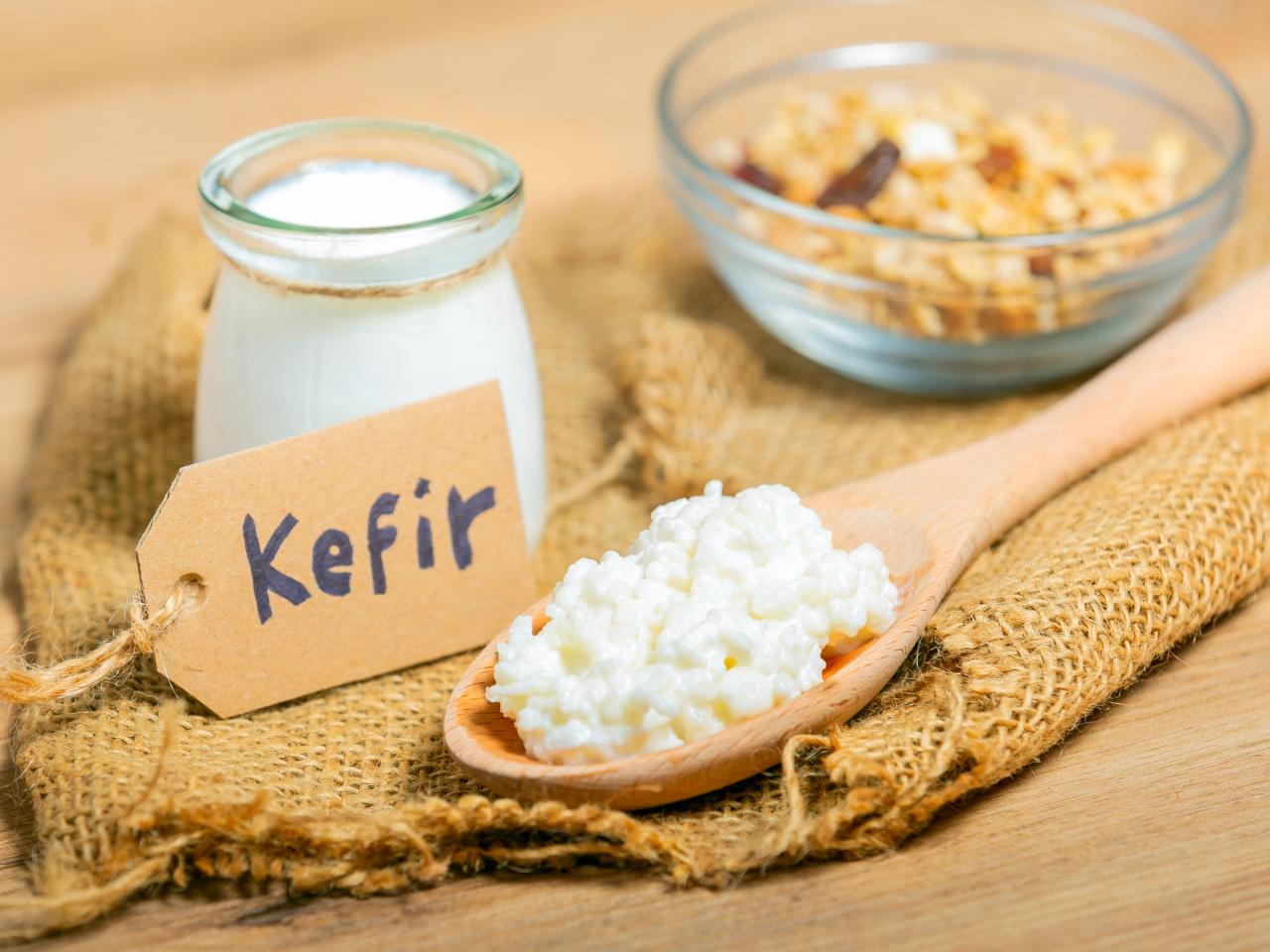Food Choices to Keep Your Gut Healthy
Maintaining a healthy gut is an important part of a strong immune system and overall health. Our “gut microbiome” consists of trillions of bacteria and other microorganisms that aid in digestion. These microbes are constantly reproducing and interacting with each other. Too much fat, sugar and animal products can cause the gut environment to become harmful, compromising healthy microbes and allowing harmful microbes to multiply and expand.
We need to consume foods containing probiotics and prebiotics to maintain a healthy gut microbiome. Probiotics provide beneficial microorganisms, while foods containing prebiotics help these microorganisms flourish and grow.
Beans and Legumes
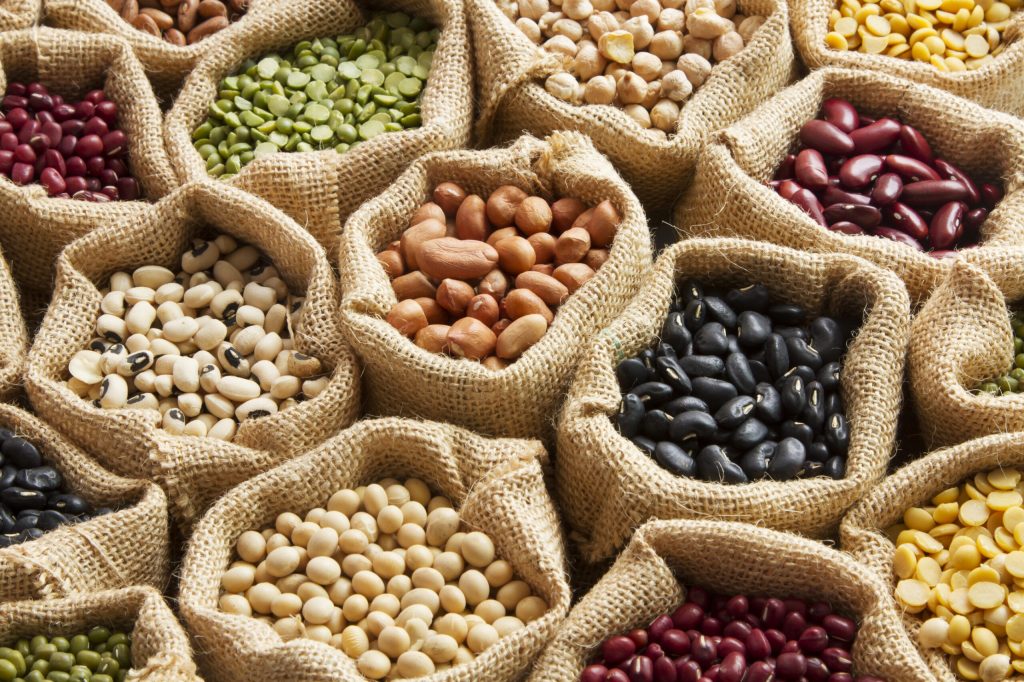
Prebiotics are actually fiber and starch, which are not broken down by the body’s digestive enzymes. These indigestible compounds become food for beneficial microbes in the gut. The microbes break down prebiotics for energy and produce short-chain fatty acids (SCFAs), which help boost the immune system.
While most plant foods contain indigestible fiber and starch, legumes, such as beans, lentils, peas and chickpeas, are especially rich in prebiotics.
Asparagus
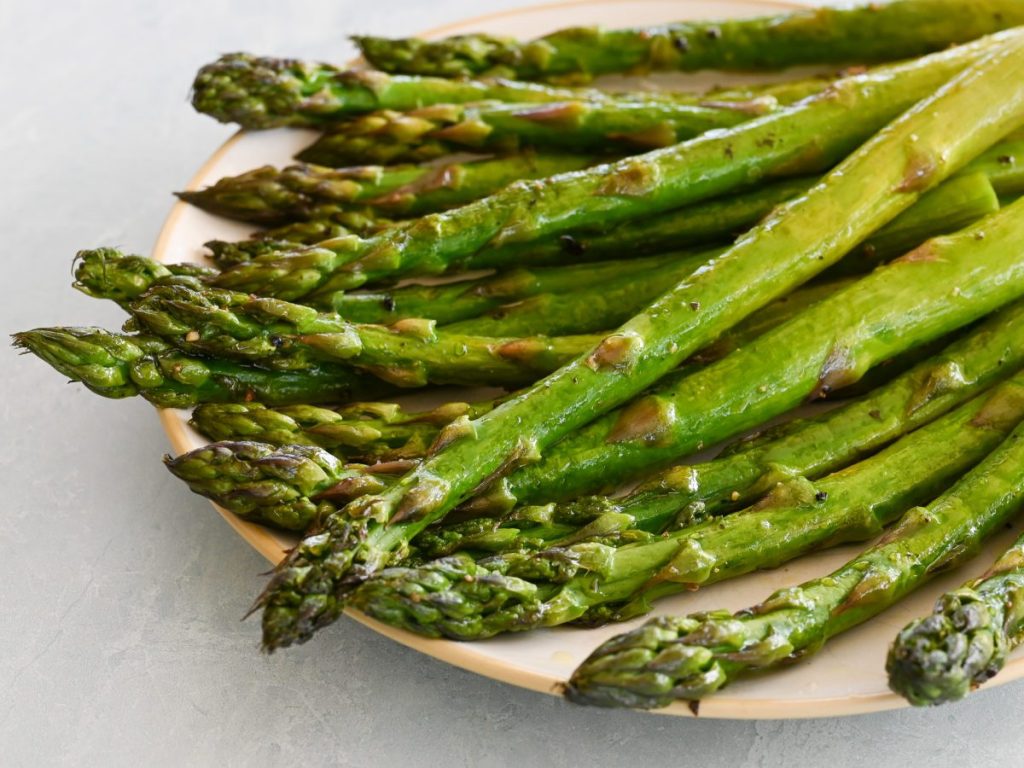
Asparagus is also a great source of prebiotics for beneficial microorganisms, as well as being rich in a variety of nutrients such as folate, vitamin K, iron and niacin.
Cooked asparagus may provide relief from certain digestive disorders by reducing inflammation. With over 300 edible varieties of asparagus on the market, try different kinds to capitalize on the benefits of this nutrient-dense vegetable.
Bananas
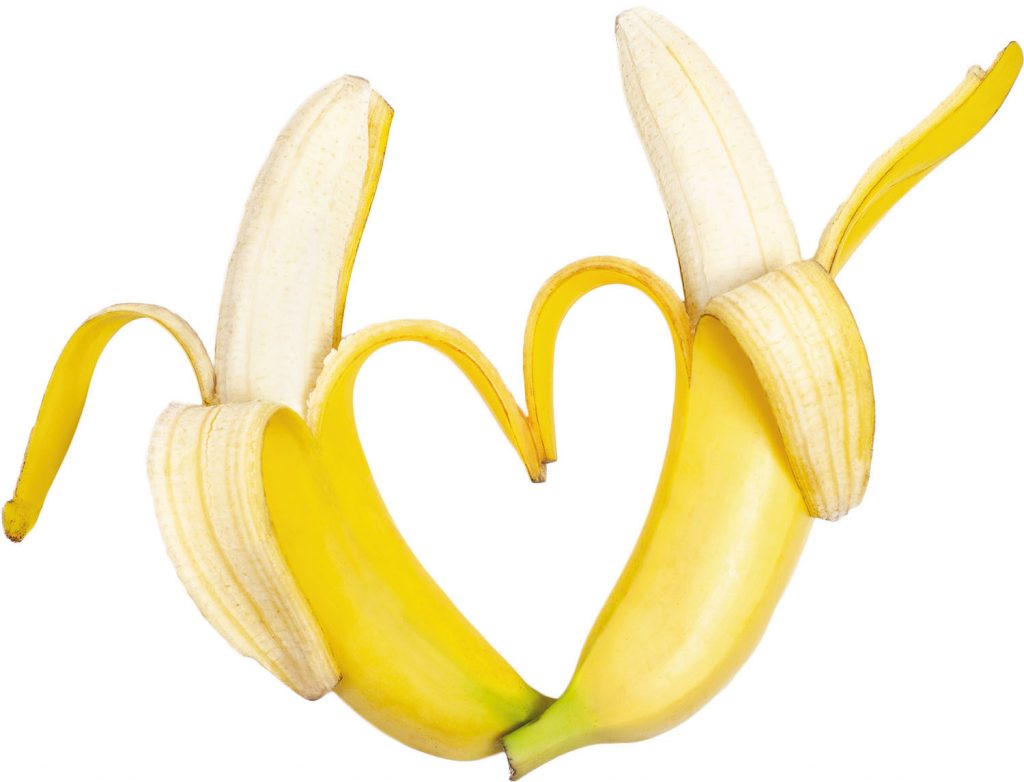
Bananas contribute to gut health because they contain prebiotic fiber and water. A medium-sized banana provides about 10 percent of the recommended daily dietary fiber for adults.
The BRAT diet that some doctors recommend for diarrhea includes bananas, applesauce, rice and toast. Studies have found that the fiber and antioxidants in bananas may promote the growth of beneficial microorganisms such as lactobacilli and inhibit the reproduction of some harmful bacteria.
Sauerkraut
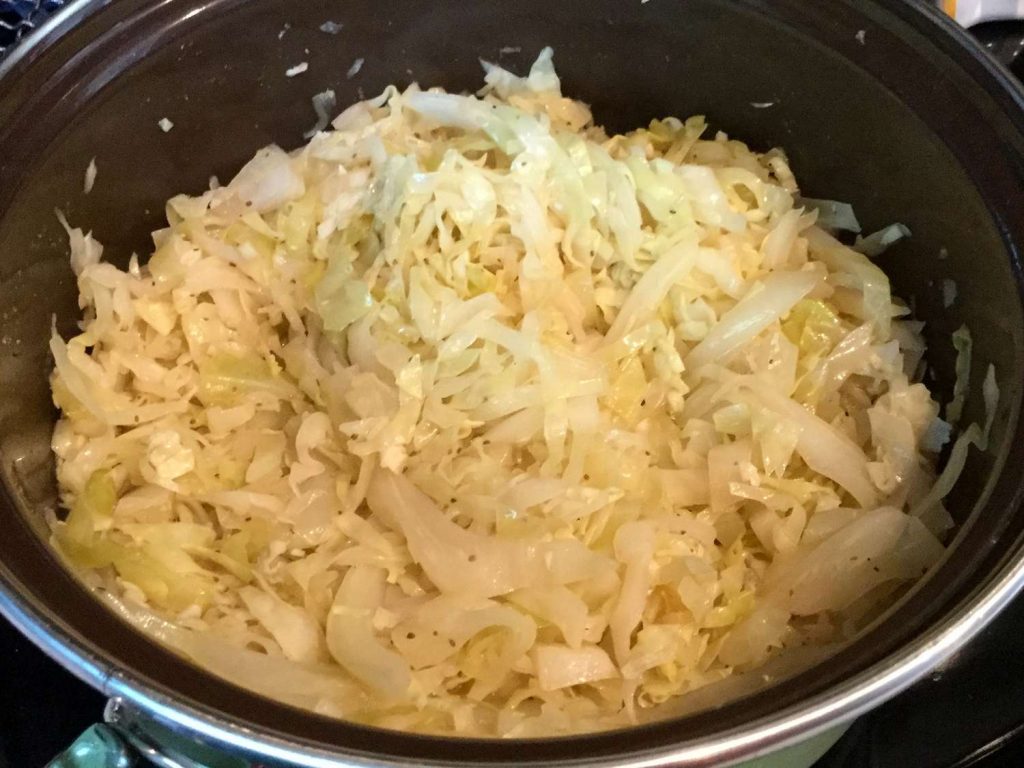
Sauerkraut is rapidly gaining a reputation as a probiotic superfood. It is difficult to quantify the health benefits of sauerkraut because each fermented food is prepared differently and may contain different amounts and types of probiotics. However, consuming fermented foods has advantages over supplements that rely on precise measurements of probiotic content.
A batch of sauerkraut may contain as many as 28 strains of bacteria, which is significantly more than most supplements can provide. Probiotics in fermented foods are also more likely to grow and multiply in the gut, and are more vigorous and adaptable than those found in supplements.
Kimchi
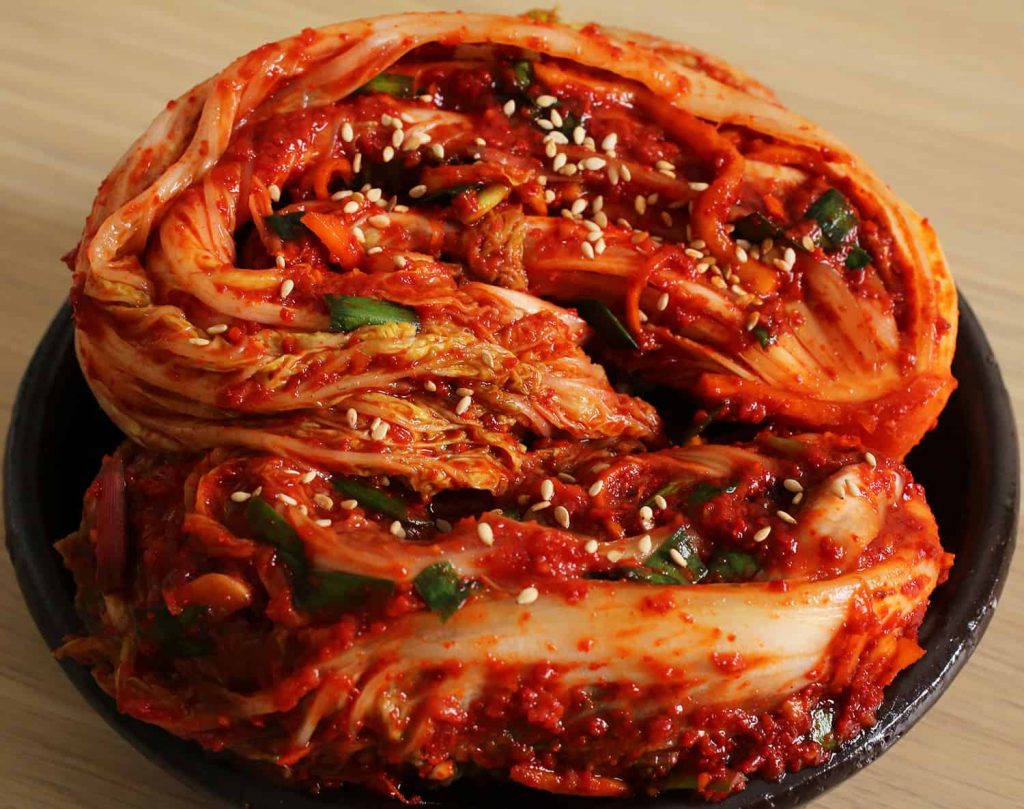
Kimchi is another fermented food rich in active probiotics. The vegetables in kimchi provide plenty of fiber, and the lactic acid bacteria from the fermentation process may promote immune function.
While many traditional kimchi preparations use fish sauce and other fish products, studies have found that kimchi made with miso or soybean paste has very similar probiotic content. This means that vegetarians and vegans can also benefit from this food.
Tempeh

Tempeh is usually made from fermented soybeans, but other beans and legumes can also be used. As a plant-based food, tempe is rich in fiber. However, many tempe products sold in grocery stores have been pasteurized and may not contain active probiotics.
Consumers can look for suppliers that sell unpasteurized tempe or make their own tempe at home to benefit from its wide range of prebiotics and probiotics.
Apple Cider Vinegar
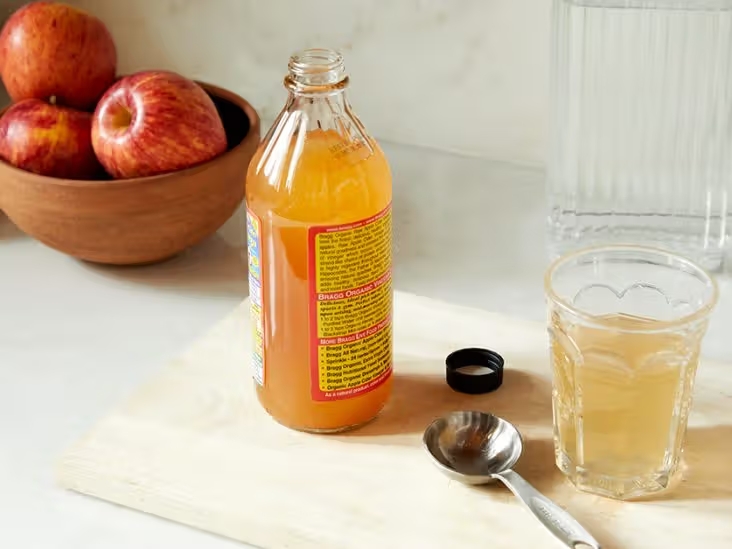
Raw apple cider vinegar contains pectin, a prebiotic fiber. Pectin lowers cholesterol and promotes the growth of beneficial bacteria in the intestines. The antioxidants in apple cider vinegar may help protect cells from harmful free radical damage.
While most studies are inconclusive about the health benefits of apple cider vinegar, adding a small amount of apple cider vinegar to your daily diet may provide some positive results. Vinegar is acidic, and undiluted vinegar may cause irritation or burns in the esophagus, and frequent exposure may erode tooth enamel. For this reason, experts recommend drinking apple cider vinegar with water or juice.
Kefir
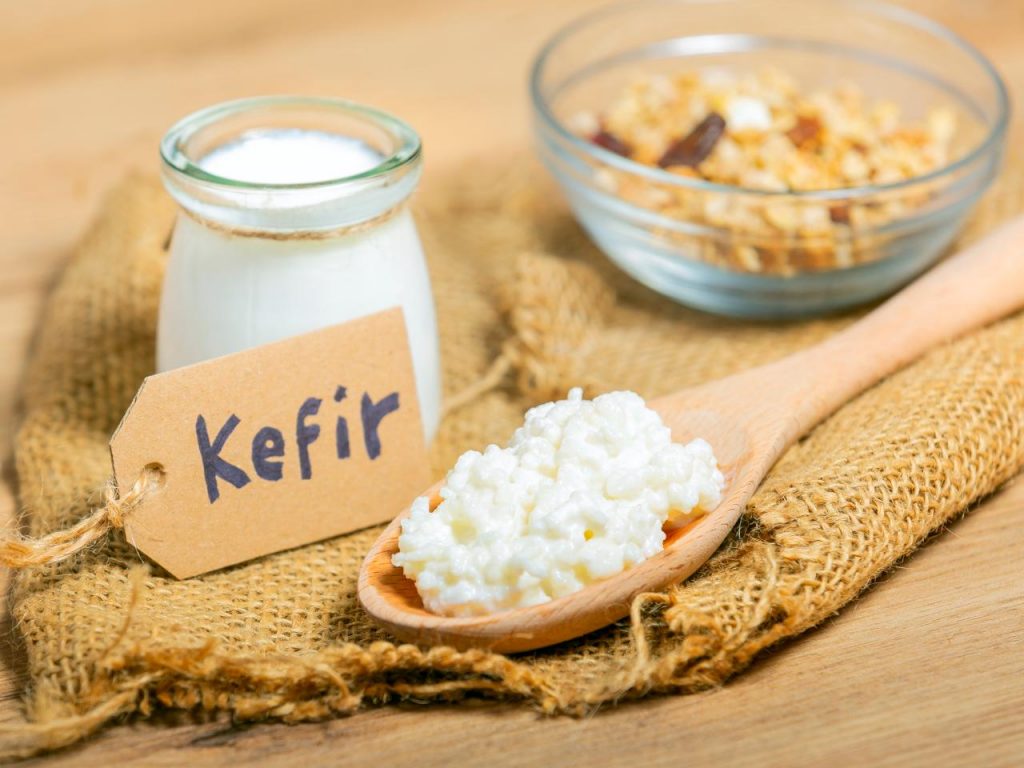
Kefir is a dilute yogurt made by fermenting lactose with kefir bacteria, which has a tart, slightly sour flavor and is great for use in breakfast cereals, shakes, and other beverages.
Most kefir products are a great source of fiber and probiotics, which are great for gut health. While kefir is usually made with dairy milk, there are also vegetarian and vegan options based on soy milk.
Kombucha
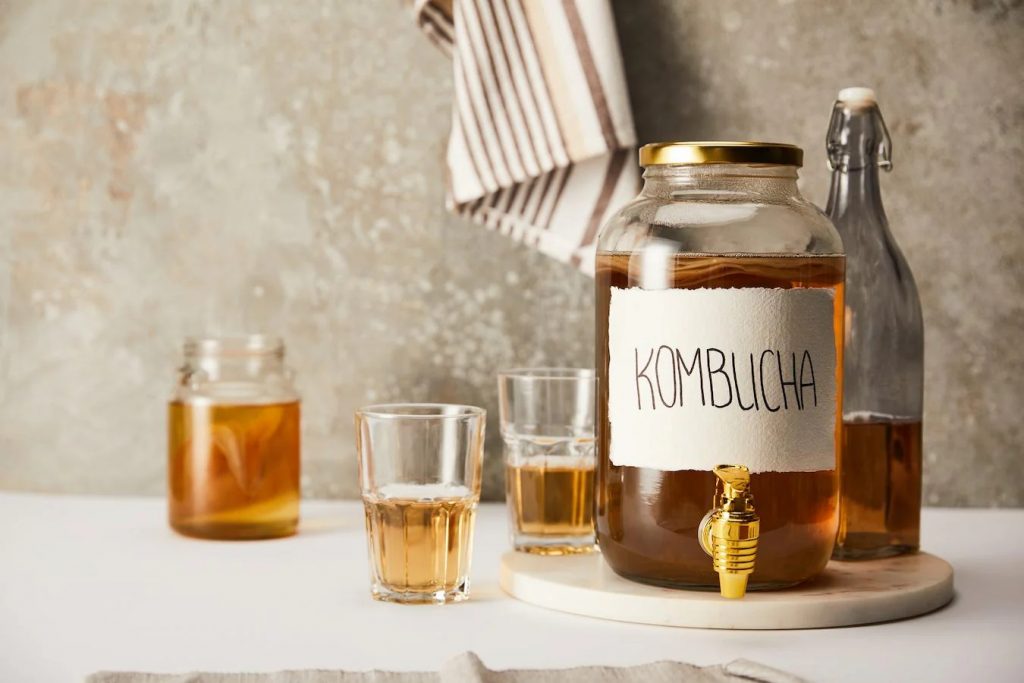
Kombucha is a beverage made by fermenting plant material with a variety of microorganisms such as lactobacilli, yeast and acetic acid bacteria. The teas, juices, or herbs used to make kombucha contain a number of bioactive compounds that often have antioxidant properties.
Specific benefits vary depending on the ingredients and fermentation process of different types of kombucha, but this beverage offers a wide range of beneficial microorganisms, prebiotics and probiotics.
Fermented Coffee
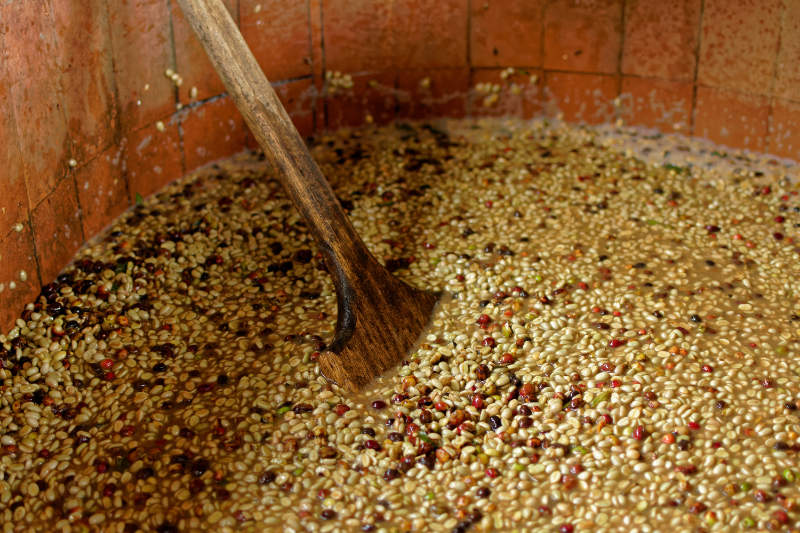
Researchers at the National University of Singapore have developed fermented tea and coffee products enriched with active probiotics. The fermentation process is achieved by adding nutrients and probiotics to any type of brewed coffee or tea. Each preparation ferments for about 48 hours and contains more than 1 billion probiotics.
These coffees or teas also retain chlorogenic acid, a substance associated with lower blood pressure and weight management.

